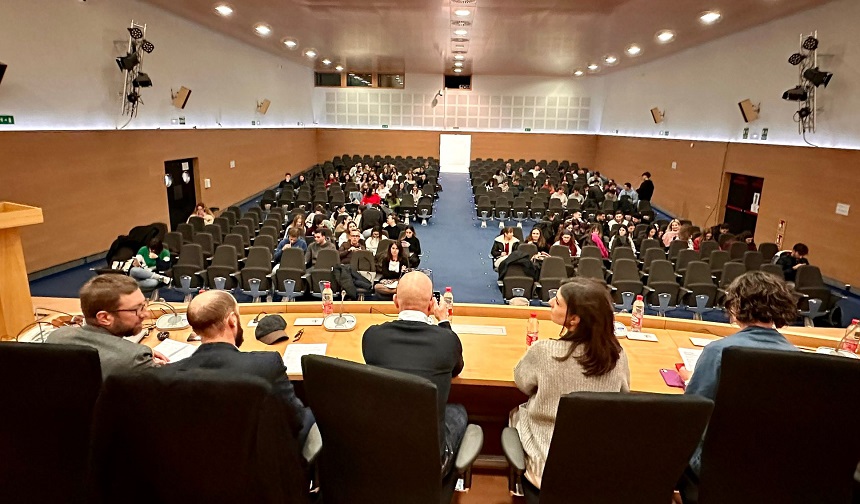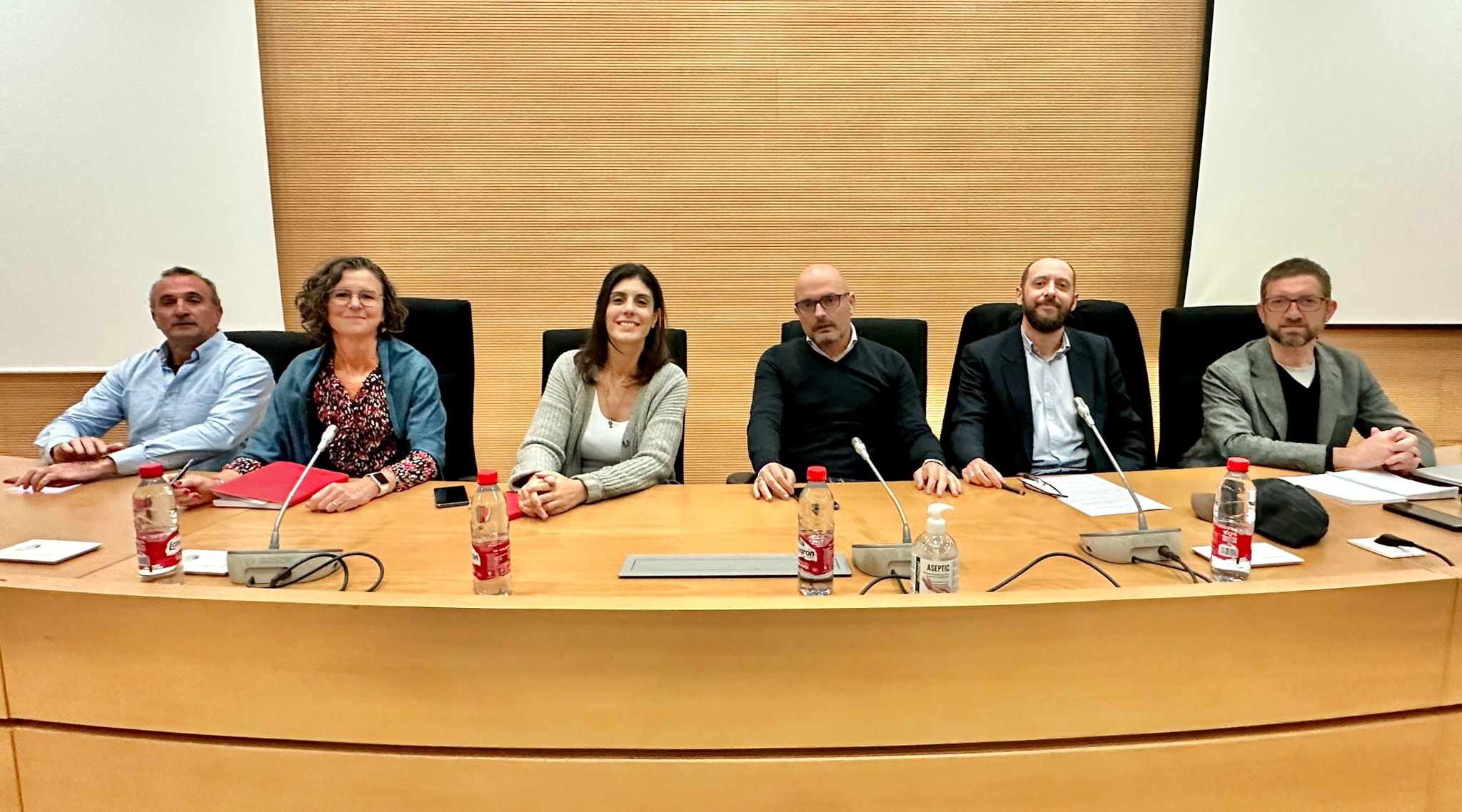VALENCIA. The Chair for Audiovisual Prospects and Analysis (CAPA) and the Audiovisual Council of the Valencian Community (CACV) together with the Journalism Department of the Faculty of Language Studies, Translation and Communication hosted a conference last Tuesday 5 December in the Assembly Hall under the title “Valencia Media in the face of the change of power in institutions”, in which several professionals from different media companies participated.

Àlvar Peris, Professor in the Department of Language Theory and Communication Sciences and member of the CACV, was in charge of the conference’s opening act, emphasising the importance of the work of independent bodies such as the Audiovisual Council, responsible for ensuring respect for the rights, freedoms and constitutional and statutory values in the field of audiovisual media in the Valencian Community, as well as compliance with current regulations on audiovisual and advertising matters.
Peris then gave way to the panel discussion moderated by Associate Professor of Journalism and Head of Politics at Valencia Plaza Ximo Aguar, with the participation of Héctor Esteban (Las Provincias), Raquel Pérez Ejerique (eldiario.es), Ana Durán (Cadena Ser) and Víctor Romero (El Confidencial).
During the hour and a half discussion, the professionals analysed the current situation of Valencian media in relation to the changes in institutional power that occurred following the regional and local elections last May. They also compared the performance of media companies in the final stretch of the previous government, during the campaign and after the new government took office.
The range of analysis was wide. It ranged from the paradigm shift in the media with the economic crisis of 2007-08, where, for some of the speakers, newspaper editors began to lose influence over managers and commercial managers, to the current situation in which the fragmentation of audiences, the difficulty of monetising content and the strong influence of social networks have put the media under greater pressure and changed the productive routines of journalists.
The participants shared with the audience, mostly second and third-year students of Journalism, specific experiences of their relationship with institutional powers. They shared the “prejudice” that professionals sometimes suffer as a result of being identified by the institutions with the editorial line of their media or how this same line of the news company contributes to the existence of greater pressure to publish favourable content.
The speakers were also self-critical of the work of journalists in the media with an interesting part of the debate being devoted to the very “self-censorship” of media professionals. Similarly, editorial reposition in pre- and post-electoral periods was also addressed, as well as the strengthening or emergence of media closer to a new institutional power when there is a change of political party.
In the final part of the discussion, a question-and-answer session was conducted for the attendees, in which the speakers also discussed the particularities of the journalistic profession today, as well as the situation and working conditions in the media.



